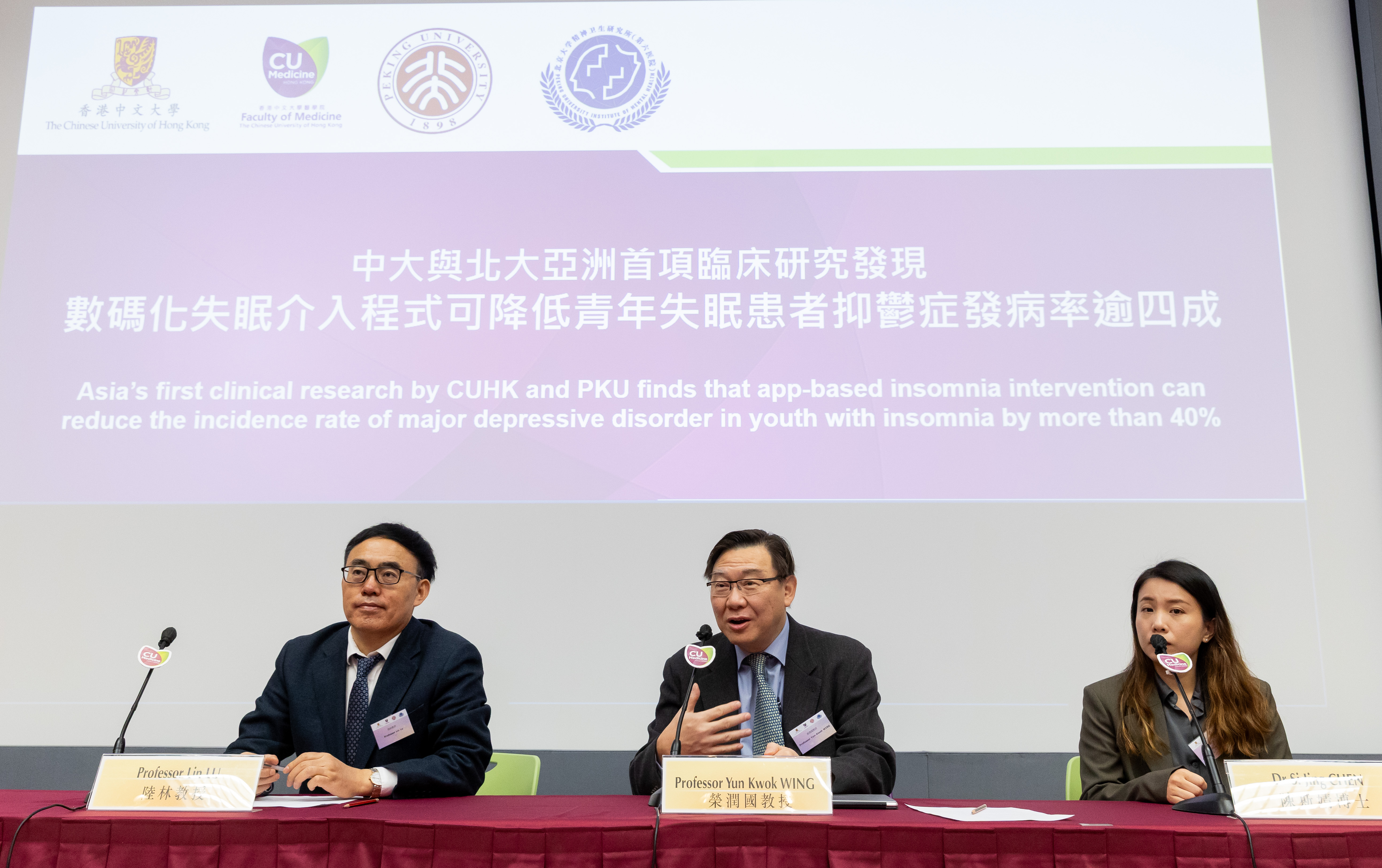
A digital-based therapy, which uses a mobile application with recording and analytic functions, can relieve the symptoms of insomnia and depression among young people aged 15 to 25, according to a team of Chinese mainland and Hong Kong scientists.
Researchers from the Chinese University of Hong Kong’s Faculty of Medicine and the Peking University Sixth Hospital said they hope the innovative, app-based therapy is more appealing to young people who are at a high risk of depression but less receptive to traditional treatments.
The insight comes as mental health issues of young people have increasingly come under the spotlight. According to the World Health Organization’s Global Burden of Disease 2021, 3.5 percent of youths aged 15 to 19 experienced depression. CUHK mental health research in 2023 said that 3.9 to 5.2 percent of Hong Kong youngsters suffered from depression.
At a news conference on Thursday, scientists involved the project revealed the results of their clinical research on “digitalized intervention application” (CBT-I), or cognitive behavioral therapy for insomnia.
ALSO READ: Opening up troubled minds
The CBT-I treatment traditionally involves six to eight face-to-face sessions where a trained CBT-I provider will examine, identify and reframe thoughts, feelings and behaviors that have led to someone’s lack of quality sleep.
The research, jointly conducted by CUHK and PKU, recruited 708 mainland and Hong Kong young people aged 15 to 25, all of whom had insomnia with symptoms of subclinical depression. Half of them undertook a six-week treatment via a digital CBT-I intervention phone app, while the other half received only general health education.
The digital CBT-I program used in the research presented participants with courses and matched practices in six weekly stages on par with those of conventional CBT-I treatment, covering areas such as sleep restriction, stimulus control, cognitive restructuring and relapse prevention, said the first author of the research, Chen Si-jing, a postdoctoral fellow at CUHK Faculty of Medicine.
The insomnia remission rate of those who received digital-based therapy was 60 percent, according to the one-year follow-up. The rate of incidence of depression was about 10 percent, significantly lower than the 18 percent logged by the control group, according to Thursday’s conference.
ALSO READ: Offering hope to those who feel despair
Eighty-four percent of those in the e-CBT-I treatment group completed all sessions, indicating a strong motivation among young people to address their insomnia – a problem that could significantly increase the risk of depression, Chen added.
The promising result has been published in international medical journals, hoping to pave the way for developing digital self-help treatment that is more readily embraced by the digital native generation, a term describing individuals born from 1980, the scientists said.
“These findings highlight the importance of developing digital mental health therapeutics to meet the significant clinical demand,” said Wing Yun-kwok, chairman of the Department of Psychiatry at CUHK Faculty of Medicine.
CBT-I has long been recognized as an effective therapy for adults, and the research unveils its potential for younger patients, said Lu Lin, academician of the Chinese Academy of Sciences and president of Peking University Sixth Hospital. But Lu added that there are barriers that need to be removed.
ALSO READ: Stronger health awareness awakens sleep economy
“For instance, a community-based study indicates that the help-seeking rate of young insomnia patients on the Chinese mainland and in Hong Kong is as low as 10 percent,” Lu said, “CBT-I is typically conducted by medical professionals throughout, making it a time-consuming and costly process that limits accessibility for youths.”
Wing expressed optimism about further exploration of innovative treatments for insomnia and depression, aiming to advance personalized prevention and early intervention in young people.
Lu echoed that sentiment, highlighting the potential for research results to evolve into effective digital mental health solutions, which are often hindered by social stigmas, professional support shortages and high costs.
“We welcome ideas and support from all sectors to probe the commercialization of such intervention applications,” Lu said, “better even to incorporate artificial intelligence, making treatment more affordable for the broader population.”


